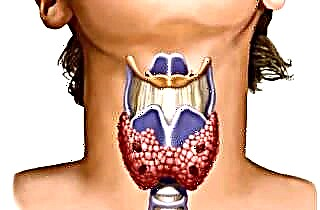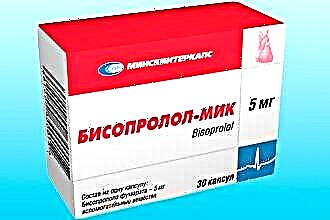Sore throat is a very unpleasant sensation, especially severe, which interferes with swallowing and provokes a persistent cough. Trying to get rid of this symptom, many take antibiotics on their own for a sore throat, without even consulting a doctor. Sometimes they help, but more often the uncontrolled use of such drugs only exacerbates the situation and leads to unwanted side effects.
Why does my throat hurt?
A sore throat can be caused by a thousand reasons, most of which are non-infectious. Therefore, swallowing an antibiotic for a sore throat without a doctor's prescription  completely meaningless and even harmful. In cases where it can be dispensed with, it is better to use other medicines. Thus, immunity is strengthened, and the risk of adaptation of microorganisms to the drugs used is reduced.
completely meaningless and even harmful. In cases where it can be dispensed with, it is better to use other medicines. Thus, immunity is strengthened, and the risk of adaptation of microorganisms to the drugs used is reduced.
The evolutionary development of bacteria lasts for several million years. And they are still alive only because they are able to quickly adapt to abrupt changes in environmental conditions. Therefore, if the treatment of the throat with antibiotics is performed incorrectly or not completed, there is a high probability that some of the microbes will survive, but these drugs will no longer take them. And then it will be much more difficult to cope with the new wave of the disease.
A sore throat is a sign of severe irritation or inflammation that can be triggered by external or internal factors. Among the most common reasons why your throat may suddenly get sore are:
- Colds, acute respiratory infections, acute respiratory viral infections are the most common respiratory diseases, most often provoked by viruses, not bacteria.
- Too dry air - leads to dryness of the mucous membranes of the nasopharynx, constant sore throat, dry unproductive cough to a sore throat.
- Polluted air - causes mechanical irritation of the larynx with particles of dust, dirt, etc. With constant irritation, the mucous membranes become inflamed and pain appears.
- Chemical irritation or burns - caused by prolonged or severe exposure to harsh chemicals. The pain is caused by damage to the mucous membrane, the formation of burns and ulcers on it.
- Smoking is one of the most common causes of sore throat in adults. Long-term exposure to tobacco smoke leads to atrophy of mucous membranes, which are easily irritated and inflamed, and a characteristic “smoker's cough” appears.
- Overstrain of the ligaments - can occur with too loud screaming, improper singing, prolonged recitation. For this reason, sore throats are common among singers and teachers.
- Thyroid disease - An enlarged thyroid gland located on the front of the neck can cause pain when swallowing or turning the head abruptly.
 Oncology - the appearance and growth of a tumor in the nasopharynx, throat and upper respiratory tract also provoke pain.
Oncology - the appearance and growth of a tumor in the nasopharynx, throat and upper respiratory tract also provoke pain.- Reflux disease - accompanied by the throwing of part of the contents of the stomach and gastric juice into the esophagus. As a result, mucous membranes are irritated, heartburn and sore throat are felt, especially severe at night and in the morning.
- Myocardial infarction or an attack of angina pectoris - causes an acute lack of oxygen and spasm of the muscles of the larynx, which is accompanied by pain.
- Respiratory diseases of a bacterial nature - tonsillitis, pharyngitis, sinusitis, bronchitis. The presence of pathogenic microorganisms is usually indicated by a yellow or green color of nasal discharge or a purulent plaque in the throat.
Accordingly, before taking antibiotics for sore throat in adults, it is necessary to exclude all possible non-infectious reasons for which these drugs are useless.
It is easiest to identify the presence of an acute inflammatory process and determine the causative agents for throat disease with the help of a general blood test and bacterial inoculation of mucus. If these data are not enough to make a diagnosis, the doctor may ask for an additional examination: X-ray, ultrasound, computed tomography, etc. And only after the final diagnosis is made, a decision is made to prescribe antibiotics for the treatment of the throat.
When an antibiotic is needed
Antibiotics from the throat are necessary if, according to the test results, the bacterial nature of such diseases is revealed: pharyngitis, tonsillitis, laryngitis or paratonsillar abscess. In acute form, they have very similar symptoms, if found, you must immediately consult a doctor and not self-medicate:
 sudden and strong rise in temperature up to 39OC and higher;
sudden and strong rise in temperature up to 39OC and higher;- sharp sore throat, especially worse when swallowing;
- inflammation of the submandibular or cervical lymph nodes;
- symptoms of general intoxication of the body: dizziness, nausea;
- severe weakness, loss of performance, increased fatigue;
- severe redness of the tonsils and / or uvula;
- thick yellow-green mucus from the nose or when coughing up;
- purulent or white bloom on the throat, boils on the tonsils;
- skin rashes, discoloration of the skin.
With the simultaneous presence of three or more of the above symptoms, broad-spectrum antibiotics are usually immediately prescribed for the throat to prevent possible complications. When the results of the examination come, the drug can be replaced with a more effective one or its dosage can be adjusted.
It also becomes necessary to use an antibiotic when, after several days of home treatment with folk remedies, the situation has not improved: the temperature persists, the throat hurts, and the redness does not go away. Most likely, the patient's immunity is weakened, and his body cannot cope on its own with a sore throat. But in any case, the doctor should prescribe the medicine.
The best drugs
There is no such thing as a throat antibiotic. Antibiotics are universal drugs capable of destroying pathogenic (unfortunately, not only) microorganisms in any organs of the human body. This is important to know in order to understand why there is so much controversy and controversy around antibiotics.
It is impossible to unequivocally name the best preparations for the throat with an antibiotic, since in each specific case the medicine must be selected individually, taking into account the patient's age, his general condition, the type and characteristics of the course of the disease.
Below is a list of antibiotics that have worked well for laryngeal inflammation and tonsillitis:
- penicillin series: "Amoxicillin", "Augmentin", "Amoxiclav", "Flemoxin", "Biillin", etc .;
- cephalosporins: Cefazolin, Certriaxone, etc .;
- macrolides: "Azithromycin", "Clarithromycin", etc .;
- fluoroquinolones: Levofloxacin, Norfloxacin, Moxifloxacin, etc.
These are systemic drugs that come in the form of pills and / or injections and affect the entire body. Most contraindications apply to them, and the dosage must be accurately calculated.
 But there are also antibiotic medications designed to suck or irrigate the throat. A local antibiotic can even be used to treat pregnant and lactating women, since most of the drug remains on a sore throat, and it almost does not enter the bloodstream. It is also impossible to abuse such funds, since an overdose and the manifestation of side effects associated with it are possible.
But there are also antibiotic medications designed to suck or irrigate the throat. A local antibiotic can even be used to treat pregnant and lactating women, since most of the drug remains on a sore throat, and it almost does not enter the bloodstream. It is also impossible to abuse such funds, since an overdose and the manifestation of side effects associated with it are possible.
The most popular and effective topical drugs are considered by doctors: Bioparox, Strepsils, Strepfen, Grammicidin, Faringosept.They are available in the form of sprays and / or lozenges. It is advisable to rinse your throat well before using such funds (with warm clean water!), And then do not eat or drink for at least half an hour. When used correctly, they can even cure a sore throat at an early stage.
Remember also that antibiotics alone do not relieve a sore throat - they only correct the cause. To quickly resolve the problem, anti-inflammatory drugs or throat sprays with lidocaine or other anesthetics are usually prescribed.
It removes a sore throat well, its treatment with an oil solution of chlorophyllipt - it has anti-inflammatory and antiseptic properties, while moisturizing and softening the mucous membranes.
Steam inhalation and frequent rinsing with soda solution or herbal decoctions will significantly accelerate recovery.
Antibiotic rules
When treating with antibiotics, everything is important - from the correct diagnosis and choice of the drug to scrupulous adherence to the rules for its administration. Only in this case can you be sure that pathogens will be completely destroyed.
- The choice of the name of the drug, its form (tablet or injection) and dosage is solely the competence of the doctor. But you must definitely inform him if you were allergic to any medication after taking it, or it simply did not help you.
 The instructions for using the antibiotic must be strictly followed: the recommended hours of admission, time intervals and combinations with food (before or after).
The instructions for using the antibiotic must be strictly followed: the recommended hours of admission, time intervals and combinations with food (before or after).- You can drink the tablets only with clean water, unless otherwise indicated in the instructions. Some juices enhance the effect of the drug, milk weakens.
- During the first days after the start of treatment, it is important to monitor your well-being. If side effects begin to appear, you must inform your doctor about this, and he will adjust the dose. In case of an allergic reaction, use antihistamines and stop taking. In this case, the medicine must be replaced.
- If in 2-3 days there is no significant improvement in the condition, then be sure to inform your doctor about it. The bacteria may be insensitive to the drug and need replacement.
- Not only independent dosage adjustments are unacceptable, but also the intake of any other drugs that are not prescribed by a doctor. Drugs interacting can cause extremely undesirable effects.
- The course of treatment must be completed. You can not cancel the drug yourself at the first signs of improvement. Surviving microorganisms mutate and develop resistance to the drug. The antibiotic won't work next time.
- Antibiotics destroy the beneficial microflora in the gastrointestinal tract, create additional stress on the kidneys and liver. During their intake, a diet is needed: refusal of fatty, fried, spicy, salty foods, carbonated drinks, alcohol. To restore the intestinal microflora, take probiotics or include high-quality fermented milk products in the daily diet.
Only with such a reasonable approach will antibacterial drugs be as effective as possible, and the risk of side effects will be minimized. After completing the treatment, it is advisable to re-take the tests to make sure of the final recovery.
Side effects and contraindications
There are no absolute contraindications to modern antibiotics. The range of their choice is so wide that, if absolutely necessary, you can pick up drugs even for pregnant and lactating women, although 20 years ago during pregnancy, their use was strictly prohibited. Of course, there are some risks to the fetus, especially in the first trimester, but they have decreased significantly.
 Doctors have such a concept as individual intolerance to a drug or a whole group of drugs. This can be a problem when choosing antibiotics, but a competent doctor can deal with it too. This is why it is so important that only a specialist prescribes such medications.
Doctors have such a concept as individual intolerance to a drug or a whole group of drugs. This can be a problem when choosing antibiotics, but a competent doctor can deal with it too. This is why it is so important that only a specialist prescribes such medications.
Antibiotics are prescribed with great caution in people with severe renal or hepatic impairment.... Decomposition products of the drug irritate these organs and may aggravate the condition. But in the case of a life-threatening illness, the antibiotic is still used along with liver and kidney support therapy.
With the correct use of the drug and adherence to all medical recommendations, the side effects from modern antibiotics are minimal. Most often observed:
- allergic reactions;
- skin rashes;
- nausea and vomiting;
- intestinal disorders;
- dizziness;
- headache;
- surges in blood pressure.
You can relieve the condition with plenty of drinking and adherence to bed rest in the acute stage of the disease. Herbal teas: chamomile, linden, from currant leaves and rose hips contribute to the rapid neutralization and elimination of toxins and decay products of drugs.
In general, folk remedies, when used correctly, will be a good help in treating the throat. But even their use during antibiotic therapy must be agreed with the doctor.

 Oncology - the appearance and growth of a tumor in the nasopharynx, throat and upper respiratory tract also provoke pain.
Oncology - the appearance and growth of a tumor in the nasopharynx, throat and upper respiratory tract also provoke pain. sudden and strong rise in temperature up to 39OC and higher;
sudden and strong rise in temperature up to 39OC and higher; The instructions for using the antibiotic must be strictly followed: the recommended hours of admission, time intervals and combinations with food (before or after).
The instructions for using the antibiotic must be strictly followed: the recommended hours of admission, time intervals and combinations with food (before or after).

